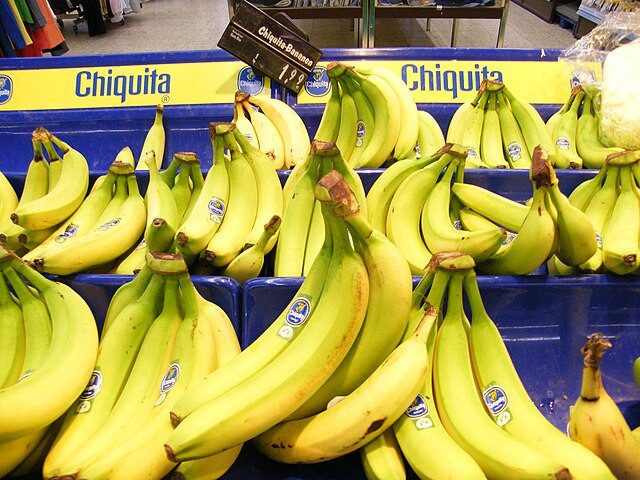A Florida court has ordered Chiquita Brands International to pay $38 million to the families of eight Colombian men murdered by a paramilitary death squad. This verdict, announced late Monday, comes after 17 years of legal battles and marks the first instance where the American banana giant has compensated Colombian victims for human rights abuses. The ruling could pave the way for thousands more to seek restitution and stands as the first time a major U.S. corporation has been held liable for such abuses in another country.
"This verdict sends a powerful message to corporations everywhere: profiting from human rights abuses will not go unpunished," said Marco Simons of EarthRights, one of the law firms representing the victims' families.
The case stems from Chiquita's payments totaling $1.7 million to the United Self-Defence Forces of Colombia (AUC) between 1997 and 2004. The AUC, a right-wing paramilitary group, was responsible for some of the worst human rights violations during Colombia's brutal conflict, which left 450,000 dead and millions displaced. The AUC was designated a terrorist organization by the U.S. in 2001, yet Chiquita continued its payments, which the company claimed were made under duress to protect its employees from Marxist guerrillas.
Court documents revealed that Chiquita allowed the AUC to use its ports to import automatic rifles and facilitated cocaine smuggling via its banana boats. The civil cases were brought by the families of trade unionists, banana workers, and activists who were tortured, killed, or disappeared by the AUC as they sought to control Colombia's banana-producing regions.
Among the harrowing testimonies was that of the widow of a union leader who was tortured and decapitated by the AUC in 1997. "It's a triumph of a process that has been going on for almost 17 years, for all of us who have suffered so much during these years," said one victim's family member, who chose to remain anonymous. "We're not in this process because we want to be. It was Chiquita, with its actions, that dragged us into it. We have a responsibility to our families, and we must fight for them."
Terrence Collingsworth, executive director of International Rights Advocates (IRAdvocates), described the case as a "bellwether trial," setting a precedent for other pending cases against Chiquita. If unresolved through negotiation, a second trial is scheduled for July 14. "These brave women and the other plaintiffs in this case have demonstrated that corporate criminals like Chiquita can be held accountable through courage and perseverance," Collingsworth stated.
The jury in the Southern District of Florida found that "Chiquita knowingly provided substantial assistance to the AUC to a degree sufficient to create a foreseeable risk of harm to others." This verdict holds Chiquita liable for the group's violent acts, including murders and forced disappearances.
In a statement to CNN, Chiquita expressed its intention to appeal the decision. "The situation in Colombia was tragic for so many, including those directly affected by the violence there, and our thoughts remain with them and their families. However, that does not change our belief that there is no legal basis for these claims," the company stated. "While we are disappointed by the decision, we remain confident that our legal position will ultimately prevail."
This case has significant implications not only for Chiquita but also for other corporations operating in conflict zones. The ruling could lead to a series of similar lawsuits involving human rights violations across the globe, setting a precedent for holding multinational companies accountable for their actions abroad.
Colombian President Gustavo Petro reacted to the verdict by questioning why a similar ruling had not been achieved in Colombia. "Why could US justice determine in judicial truth that Chiquita Brands financed paramilitarism in Urabá? Why couldn't Colombian justice?" he posted on social media.






